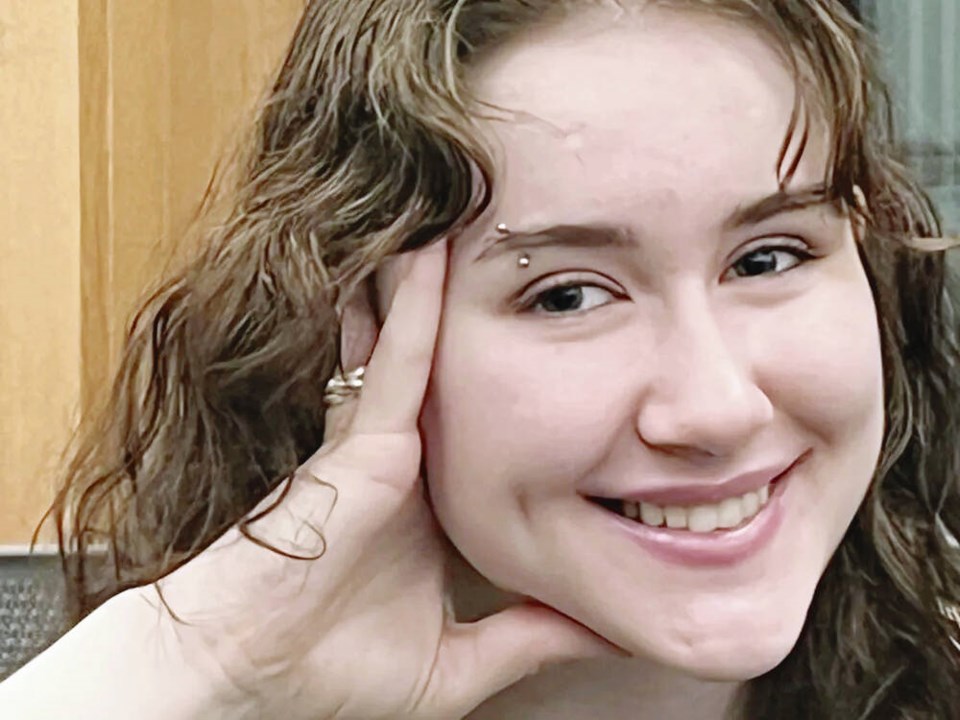A coroner’s inquest will be held in April in Burnaby to probe the fentanyl overdose death of an 18-year-old University of Victoria student last year.
Sidney McIntyre-Starko died in January 2024 of cardiac arrest due to fentanyl poisoning while in residence at UVic.
Her family has pointed to records suggesting delays by campus security and first responders contributed to the death of the first-year student, whose legal name was Cailin Shea McIntyre-Starko.
Those records showed campus security failed to administer the overdose-reversing drug naloxone or start CPR in a timely manner, as well as delays in 911 operators getting an ambulance to the dorm.
In an open letter to Premier David Eby last May, the family cited “catastrophic failures” by both the university and the 911 operator in response to a report of two unconscious girls who were turning blue by the time campus security showed up three and a half minutes after being called.
The parents presented a detailed timeline showing campus security waited nine minutes to administer naloxone and 12 minutes to start CPR.
The 911 operator waited 10 minutes to ask if an unconscious McIntyre-Starko and her friend, who survived the overdose, had consumed drugs, and 12 minutes before suggesting the use of naloxone, according to the records.
Dispatched late, firefighters located across the street from the campus didn’t arrive for 15 minutes.
“At that point, Sidney was in full cardiac arrest and only her organs could be saved,” wrote parents Caroline McIntyre and Kenton Starko. “Fentanyl may have killed our daughter, but the response by the University of Victoria and the province’s lack of harm-reduction strategies targeted to this population allowed her to die.”
Students living in residence at UVic at the time of the death had no access to naloxone in their dorms, nor had they received orientation about the toxic drug supply in B.C. or how to recognize or treat an overdose, said McIntyre and Starko.
“With the level of toxicity in the drug supply in B.C., we must do more to protect our youth. B.C. has either forgotten about or consciously chosen not to protect this population,” they said. “We cannot let this happen to another young person.”
At the time, Eby called the parents’ account “profoundly disturbing” and said the solicitor general would direct a coroner’s inquest, while the minister of post-secondary education promised to work with post-secondary institutions to improve overdose-prevention measures on campuses.
The University of Victoria said it welcomes the inquest into the circumstances surrounding McIntyre-Starko’s death, is “co-operating fully” with the presiding coroner and is committed “to ensuring her passing will lead to meaningful and lasting change at UVic.”
The university said in the wake of the teen’s death it had made changes to enhance safety, with opioid-overdose emergency kits, which include nasal naloxone, now installed on every floor or lounge/communal area in residence buildings.
Last year, university president Kevin Hall requested an incident analysis and recommendations to strengthen campus safety and help the university as it navigates the province’s toxic-drug crisis. Former Abbotsford police chief Bob Rich, who retired in 2018, was asked to review the matter.
UVic said the inquest and review will inform the actions it takes to strengthen its approach to overdose prevention and response.
Presiding coroner Larry Marzinzik will lead the April 28 inquest at Burnaby Coroners’ Court.
The goal of the inquest is to make recommendations to prevent similar deaths in the future.




